The role of chromium in poultry nutrition
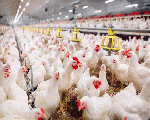
2023-08-30 13:39:55
The role of chromium in poultry nutrition
The role of chromium in poultry nutrition is an essential mineral that was first discovered by Schwarz and Mertz in mice and Jeejebhoy, et al., (1977) in humans. Over the past two decades, Cr has been considered to play a vital role in livestock and poultry production.
Chromium is not only an essential microelement required for protein, fats, carbohydrates and the utilization of nucleic acids, but also activates a certain enzyme system and stabilizes the protein. Cr is one of the transition elements and is found in binary, ternary and hexavalent forms.
The Hexavalent form is a well-known toxic and carcinogenic substance. Chromium is the most stable in the trivalent state (Cr + 3) and is the only physiologically active form of the element. Organic sources of chromium are ten times more biologically available than inorganic sources. It has been proven that chromium propionate is absorbed more efficiently than a few other organic chromium sources.
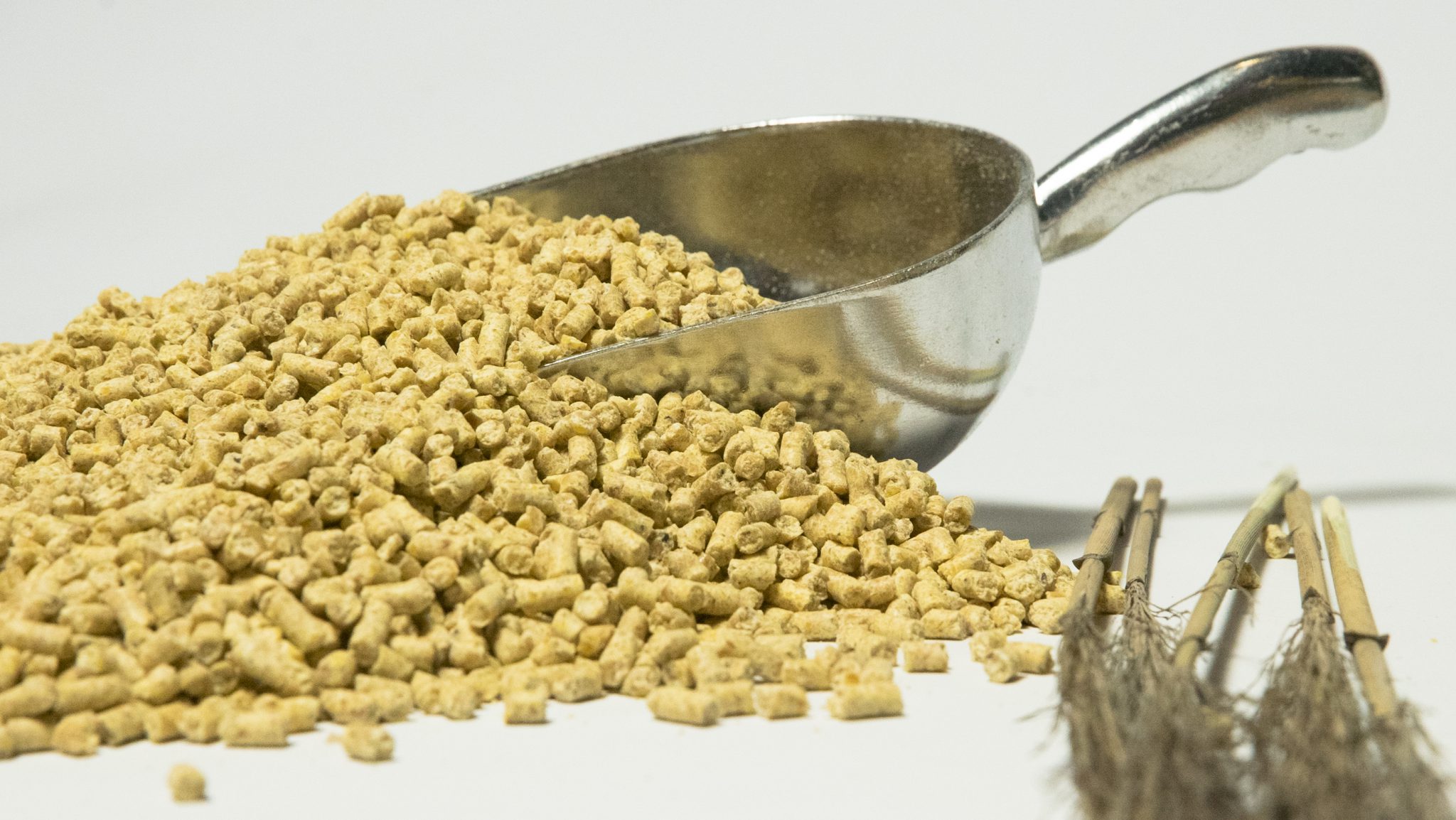
The importance of chromium in poultry nutrition
We will list the beneficial effects of chromium propionate on poultry health and nutrition as follows:
Nutritional metabolism of chromium
The main route through which trivalent chromium enters the body is through the digestive tract. The absorbed chromium circulates as free trivalent Cr, because it binds to transferrin or other plasma proteins, or as compounds such as glucose tolerance factor.
Trivalent circulating Chromium is ingested by tissues and its distribution in the body depends on age and chemical form. Food sources that affect the absorption of Cr from the intestine include amino acids, ascorbic acid and oxalates. Organic chromium Cr is absorbed in a better way in the gastrointestinal tract compared to inorganic chromium salt.
It thus has a higher bioavailability. Inorganic Cr irreversibly binds to undigested substances in the intestine and their absorption from the small intestine decreases. The low bioavailability of inorganic Chromium is due to multiple reasons.
It is likely that they are associated with the formation of insoluble chromium oxides, The Binding of chromium to naturally chelating compounds in feed raw materials, interference with ionic forms of other metals (Zn, Fe, V) and the slow conversion of inorganic Chromium to the biologically active form. The absorption of chromium in the gastrointestinal tract by ascorbic acid is promoted by chelated formations, which prevents its deposition in the alkaline pH of the poultry intestine. It is excreted mainly in the urine or binds to a low molecular weight organic carrier.
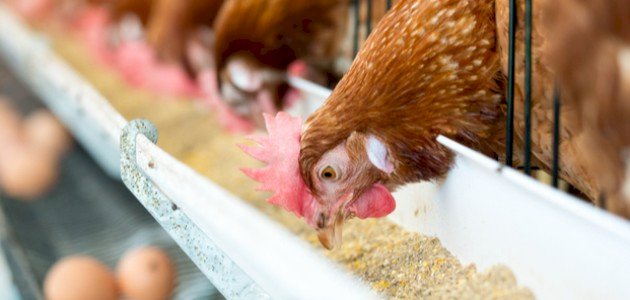
Effect on metabolism and digestion of nutrients
Chromium is an essential mineral involved in the exploitation of carbohydrates, protein and fats, in order to feed poultry, it is also a biologically active part of a biomolecule called chromodulin, which is part of the insulin signaling pathway.
Thus, it affects the absorption of carbohydrates, protein and fats. Cr is known to enhance insulin sensitivity and reduce plasma glucose concentration in broiler chickens. Insulin controls carbohydrate, protein and fat metabolism and stimulates the absorption of amino acids, protein synthesis and glucose utilization.
Cr supplementation led to a decrease in plasma glucose concentration and non-steroidal fatty acids non-steroids in broiler chickens. Enhancing the synthesis of glycogen and fatty acids is a well-documented effect of insulin.
Chromium Cr acts as a cofactor for insulin activity and the presence of this mineral is required for proper glucose metabolism and growth in animals. Several studies have supported that Cr supplements in poultry feed reduce the level of glucose in the blood and it has been proven that Cr is a mineral necessary for normal glucose absorption.
The addition of chromium propionate in male broiler chickens led to a decrease in serum glucose levels in the broiler and an increase in total protein levels. The diet supplemented with Cr led to an increase in insulin in the blood, a decrease in the level of corticosteroids corticosterone and glucose concentration in laying hens.
Cr supplements in poultry feed may enhance the utilization of food energy by stimulating the action of insulin and thus can help maintain the productivity of birds even if the food energy level is low.
Chromium may exert a protective effect on pancreatic tissue resulting in increased pancreatic function consisting of the release of digestive enzymes and improved digestion of nutrients. Cr supplementation increased the digestibility of dry matter, ash, organic matter, crude protein, crude fiber and ether extract in laying hens.
The effect of chromium on growth performance and nutrition efficiency
Numerous studies have proven that Cr supplementation at different dosage levels in poultry feed has improved feed efficiency, live weight gain and carcass quality. The addition of chromium at 500 mcg / kg in broiler feed improved the increase in body weight and feed efficiency during the growth phase. Cr supplementation in poultry feed showed better performance during heat stress as 0.5 mg / kg of chromium helps in improving feeding efficiency and carcass quality an improvement in both Final live weight and total live weight was observed in feed supplemented with chromium in broiler chickens. Chromium propionate supplementation in broiler feed showed better production of brisket. In addition, the feed diet supplemented with chromium propionate improves feeding efficiency and reduces the mortality rate in broiler chickens.
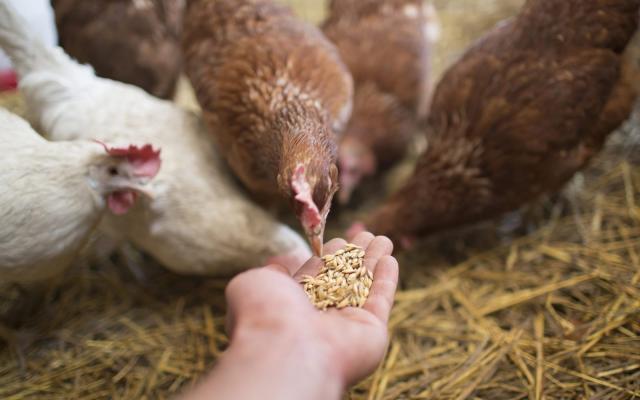
Influence on the performance of the chicken
Chromium supplements in the diet of laying hens have enhanced production performance and egg quality. The inclusion of chromium at the rate of 400 and 800 micrograms kg-1 of feed in laying hens improved egg weight, specific gravity, shell thickness and Hough-Hough unit. The addition of chromium propionate at a dosage level of 400 mcg kg-1 of feed improved egg production, while 600 mcg kg-1 improved the thickness of the eggshell in late-stage laying hens. Cr supplementation improved feeding efficiency and egg production in laying hens. The addition of Cr at a dose level of 1200 ppb also increased production performance, egg quality and blood insulin level in Japanese quail.
Influence on environmental stress in poultry
Environmental stress causes adverse effects on feed intake, nutrient digestion, feed efficiency, and egg production in poultry. The concentration of corticosteroids corticosterone in plasma also increases during stress and corticosterone acts as an antagonist of insulin activity, reduces glucose utilization by peripheral tissues and causes stress-induced hyperglycemia in poultry. The corticosteroid also reduces plasma protein and increases the concentration of glucose in the blood. Heat stress reduces the concentration of serum vitamin and minerals in poultry. Chromium stimulates and regulates the work of insulin, which is involved in the building processes in the body. A lot of research has reported that the addition of chromium Cr to poultry leeches significantly influenced environmental stress and the negative effects of stress were prevented by Cr supplementation. The inclusion of dietary chromium in poultry feed has improved the growth rate and feed efficiency. These beneficial effects of Cr can be observed more efficiently under environmental, nutritional and hormonal stress.
The effect of chromium on the health of the immune system
One of the important roles of Cr is to stimulate immune function. Immune function may be affected in combination with the activity of corticosteroids, but the production and regulation of certain cytokines can be mediated. Cr is believed to have different types of specific and cellular immunomodulatory effect. Supplementation with chromium propionate improved the antiprotozoal antibody response to disease vaccination. A positive response to poultry viruses in broiler chicks resulting from heat stress was observed when organic chromium was added and it was found that organic Chromium is better at reducing heat stress associated with reduced immunity in fattening chicks. Studies have recommended that chromium propionate supplementation at various dosage levels (100-3200 mcg kg-1) gives significant benefits in terms of improving the humoral and cellular immune response.
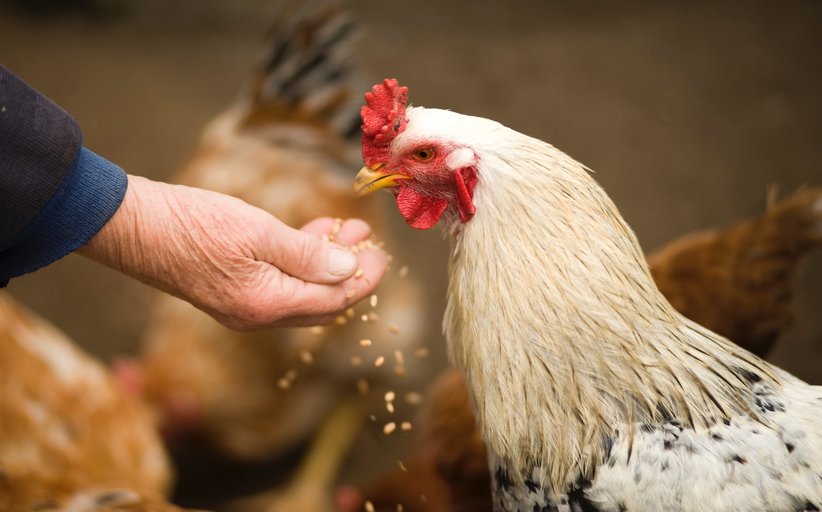
However, the increased dose of chromium propionate, the antibody response against vaccination against viral diseases and the immune response in broiler chickens, the addition of chromium propionate in drinking water or feed improves immune responses through the regulated expression of interferon gamma (IFN-) after vaccination with the R2B strain of Newcastle disease (ND). Therefore, Chromium is an essential mineral that plays an important role in poultry nutrition and health. Chromium is used in the poultry diet for its anti-stress effects, various nutritional effects that enhance immunity. Chromium propionate has beneficial effects on nutrient absorption, growth performance, feeding efficiency and immune health in poultry. Moreover, it is very useful in case of stress. The requirements for vines for different types of poultry are areas that require attention.
الموضوعات المشابهه

Agriculture receives an official delegation from the

The poultry industry between the challenges of
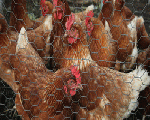
Some common diseases in poultry

The minister of Agriculture announces the release

Inflammation of the navel in chicks

Tips for broiler breeders to deal with

The role of nanoparticles in animal and

The role of chromium in poultry nutrition

Diseases (infectious Bursa diseases)

The use of dietary nucleotides in poultry

Contract agriculture and its relationship to sustainable

What to treat an animal with pneumonia..

Comments
Add comment